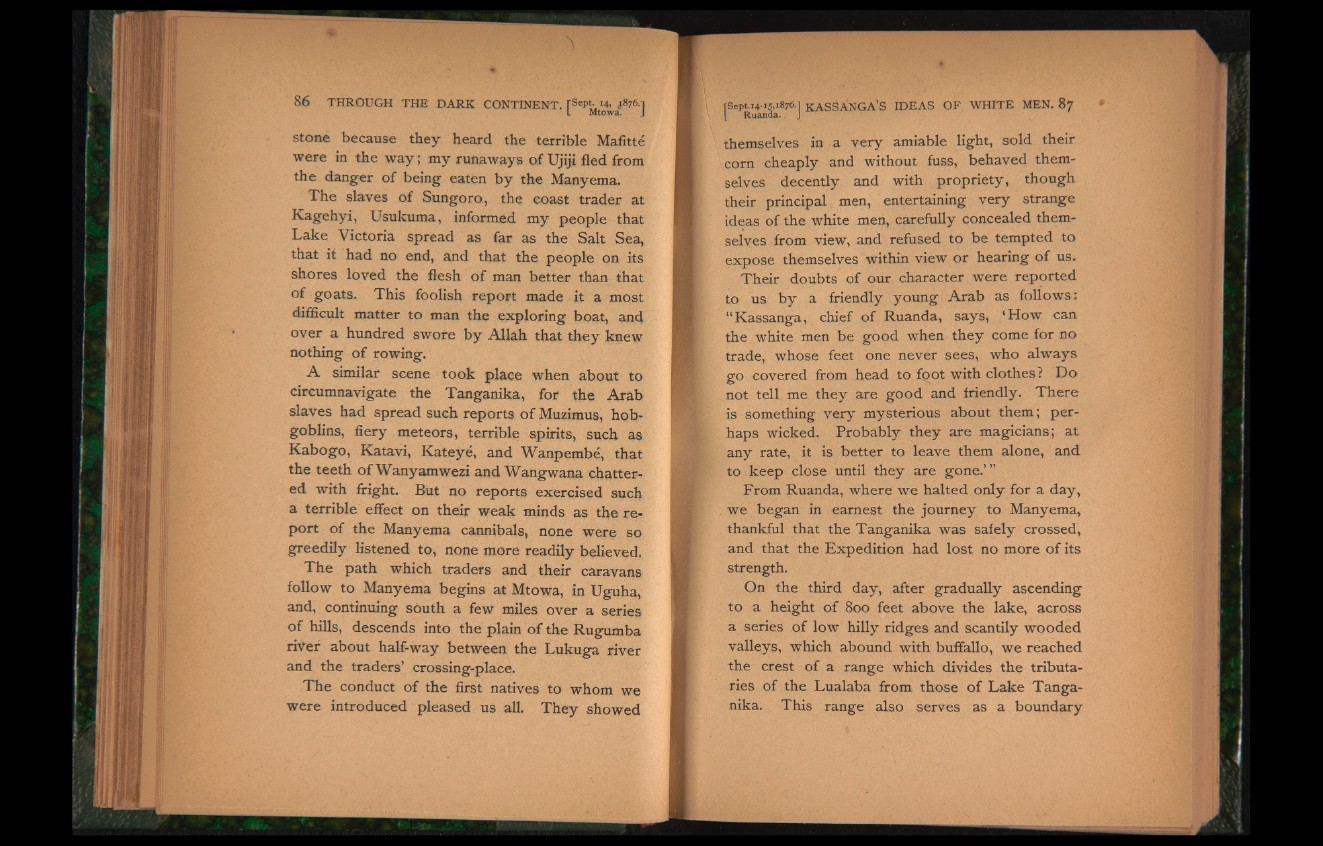
stone because they heard the terrible Mafitte
were in the way; my runaways of Ujiji fled from
the danger of being eaten by the Manyema.
The slaves of Sungoro, the coast trader at
Kagehyi, Usukuma, informed my people that
Lake Victoria spread as far as the Salt Sea,
that it had no end, and that the people on its
shores loved the flesh of man better than that
of goats. This foolish report made it a most
difficult matter to man the exploring boat, and
over a hundred swore by Allah that they knew
nothing of rowing.
A similar scene took place when about to
circumnavigate the Tanganika, for the Arab
slaves had spread such reports of Muzimus, hobgoblins,
fiery meteors, terrible spirits, such as
Kabogo, Katavi, Kateye, and Wanpembe, that
the teeth of Wanyamwezi and Wangwana chattered
with fright. But no reports exercised such
a terrible effect on their weak minds as the report
of the Manyema cannibals, none were so
greedily listened to, none more readily believed.
The path which traders and their caravans
follow to Manyema begins at Mtowa, in Uguha,
and, continuing south a few miles over a series
of hills, descends into the plain of the Rugumba
river about half-way between the Lukuga river
and the traders’ crossing-place.
The conduct of the first natives to whom we
were introduced pleased us all. They showed
themselves in a very amiable light, sold their
corn cheaply and without fuss, behaved themselves
decently and with propriety, though
their principal men, entertaining very strange
ideas of the white men, carefully concealed themselves
from view, and refused to be tempted to
expose themselves within view or hearing of us.
Their doubts of our character were reported
to us by a friendly young Arab as follows:
“Kassanga, chief of Ruanda, says, ‘How can
the white men be good when they come for no
trade, whose feet one never sees, who always
go covered from head to foot with clothes? Do
not tell me they are good and friendly. There
is something very mysterious about them; perhaps
wicked. Probably they are magicians; at
any rate, it is better to leave them alone, and
to keep close until they are gone.’ ”
From Ruanda, where we halted only for a day,
we began in earnest the journey to Manyema,
thankful that the Tanganika was safely crossed,
and that the Expedition had lost no more of its
strength.
On the third day, after gradually ascending
to a height of 800 feet above the lake, across
a series of low hilly ridges and scantily wooded
valleys, which abound with buffallo, we reached
the crest of a range which divides the tributaries
of the Lualaba from those of Lake Tanganika.
This range also serves as a boundary